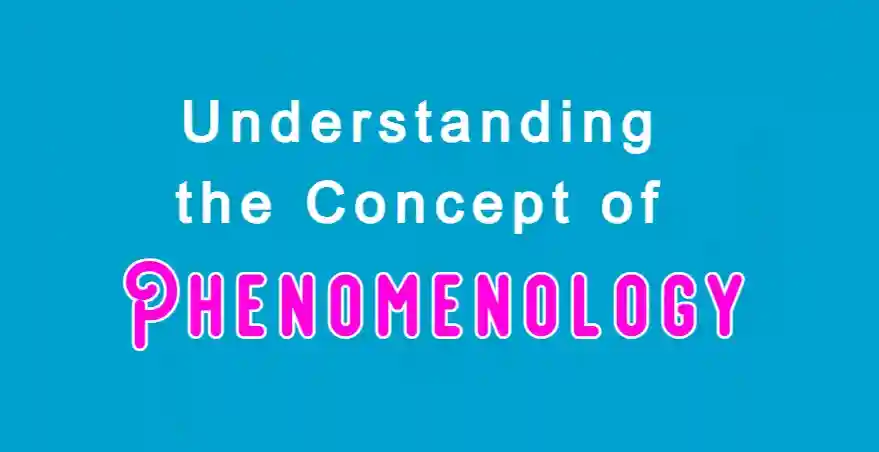Phenomenology in sociology is the study of the formal structure of experience and consciousness. It is believed that phenomenology has two main approaches: the descriptive approach and the interpretive approach. Let’s understand the concept of phenomenology in sociology.

What is Phenomenology? Introduction to Martin Heidegger’s Phenomenological Approach
Phenomenology is a philosophical branch that tries to understand and give importance to how people live the world in which we live , both in terms of its more physical aspects and in terms of social interaction and emotionality.
Phenomenology in sociology studies the concept of social reality as a product of intersubjectivity and analyzes social reality to explain the formation and nature of social institutions.
Phenomenology theory was founded by Edmund Husserl (1859-1938) at the beginning of the 20th century. In this branch of philosophy, the aim is to investigate and describe phenomena or objects as people experience them . This idea is not only applicable in the field of psychology, but also in many other fields o f knowledge, making phenomenology encompass very varied elements depending on the matter where it is applied.
Phenomenology in sociology focuses on the study of human consciousness and the ways in which individuals experience and interpret the world around them.
Phenomenology can be considered a method that allows deepening the reflection of the phenomena that occur in the world, unifying the relationship between the subject and the object, and making man participate in his experiences in front of the world.
Martin Heidegger’s contribution to phenomenology
The German philosopher Martin Heidegger was a student of Edmund Husserl, and under Heidegger, Husserl’s phenomenological method took on a new form. Heidegger’s most famous work is Being and Time (1927), in which he presents his highly original account of the existential experience of the human subject, which he refers to as Dasein.
Martin Heidegger’s phenomenology shows the existence of a relationship between man and his world, hence the description of the term Dasein, which means being there, that is, a human being in the world who approaches himself in every experience of his life, and can be brought to the awareness of himself and can express through language.
Heidegger’s vision of nursing has been adopted, both philosophically because of its interest in the human essence, or as a method for conducting research with apparent substance, as the reason for phenomenological research, according to Heidegger, is the ability to understand the extent of human experiences that are under the care of a nurse.
The philosophical reference basis for Martin Heidegger’s existential phenomenology must be present throughout the methodological course of the research project. In this section, reference is made to the structural part of constructing the results. The constructions of interpretations in phenomenological research with Heideggerian reference are hard work because they set the tone for the ability to understand.
The strategy of phenomenological analysis is to identify by approaching the essence of the phenomenon and transforming the lived experience into a textual expression of its essence. Within the theoretical basis of the qualitative approach in its virtual approach, this essence is determined. Based on Heidegger’s phenomenology, a hermeneutic circle is proposed to understand this phenomenon. The interpretive circle assumes an understanding of existence, as it is not an understanding that ends with an explanation, but rather continues from the perspective of the reason for existence itself.
When interpreting a text, the translator must make the text speak like another person in dialogue with himself. Interpretation is the understanding without presuppositions of something that has been previously presented.
Heidegger attempts to determine the form of Dasein’s possible true existence. For Heidegger, the key to originality lies in the concept of Angst, which is usually translated as fear or anxiety. Angst is the vague feeling or mood we experience when thinking about the limitations of our human existence.
Conclusion: Phenomenology in Sociology
Phenomenology in sociology is one of the most recognized approaches to explaining the formation of social behavior and the construction of social reality. This theory developed around symbolic interactionism and the idea that society is created by people and not the other way around.
Martin Heidegger’s phenomenology focuses on his interest in understanding the human being, a being thrown into the world who experiences various phenomena, some of which are related to care, since existence is care itself. Understanding comes from the person himself by virtue of his presence in the world. In his daily work, he is immersed in phenomena that will be revealed to the researcher, and which require the phenomenological method to be able to explain them.





